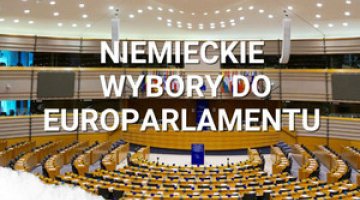Germany in favour of further limiting the migration from North Africa
On 28th August a meeting was held on limiting the migration from Africa to the EU. At the invitation of France’s president, Germany’s chancellor, the Italian and Spanish prime ministers, the presidents of Chad and Niger and Libya’s prime minister and the High Representative of the European Union for Foreign Affairs and Security Policy attended it. At the meeting the possibility of establishing a ‘resettlement mechanism’ for North Africa, modelled on the mechanism already functioning in Jordan, Lebanon and Turkey, was discussed. Chancellor Angela Merkel offset a condition for legal entry to Europe for people needing international protection, stating that there must be a limit on illegal migration and the difference between refugees and economic migrants must be determined. The latter could apply, in the future, to those coming to Europe as legal economic migrants. Merkel praised Italian-Libyan co-operation which has led to a decrease in the number of people arriving in Italy from Libya from 11,000 in July this year to 3,000 in August. Furthermore, she indicated that Germany wished to increase development assistance for the countries which the migrants are coming from. The meeting did not lead to any decisions; it did, however, result in the establishment of a working group for coordinating joint actions. At the beginning of November a subsequent meeting with the same participants will be held in Madrid in preparation for the EU-Africa summit (scheduled for 29th – 30th November).
Commentary
- France’s president Emmanuel Macron opted for the introduction of the possibility of legal migration for those from North Africa in need of international protection when, in July this year, he suggested establishing hot-spots in Africa as places where refugees would be registered. Eventually, it was decided at the summit in Paris that the related procedure which had been in force since 2015 should be extended. On 8th June 2015 the European Commission adopted a conclusion on the ‘European Resettlement Scheme. On 20th July 2015 this was the basis upon which the EU countries agreed on the legal migration of 22,504 people from refugee camps in Jordan, Lebanon and Turkey who ‘clearly required international protection’. The Office of the United Nations High Commissioner for Refugees along with the EU states were responsible for the verification of those people.
- The suggestion to regulate migration from Africa by enabling selected Africans to legally enter the EU did not earn Merkel’s support, even though in 2016 that concept was put forward by the German interior minister Thomas de Maizière (CDU). The chancellor’s initial agreement stems from the following factors: an increase in the number of refugees from Africa coming to Europe, the hardening of the German migration policy, the electoral campaign ahead of the Bundestag elections, the willingness to emphasise close co-operation with the French president and the pressure from African countries which are demanding that legal migration be made possible in exchange for stricter border controls. Furthermore, Germany treats this forum as an element of a future EU solution to containing migration from Africa. Approximately 14,000 people a month apply for asylum in Germany, the largest group of asylum seekers are Syrians (24% in the period from January to July this year), Iraqis (10%) and Afghans (9%). As far as African countries are concerned, most asylum applications are submitted by Eritreans (6%), Nigerians (4%) and Somalis (4%); nevertheless, Germany fears an increase in the number of asylum applications from citizens of those countries most of all.
- Chancellor Merkel has used the meeting and the announcement to make it possible for a limited number of people from Africa to legally arrive in the EU in her electoral campaign. Due to this she has presented herself as actively taking measures to reduce migration from Africa and has emphasised its humanitarian nature (due to keeping migrants in Libya and the possibility of entering Europe legally fewer people die while trying to reach Europe by boat via the Mediterranean Sea). As for Merkel, she has focused the discussion about immigration on its foreign aspects, not issues regarding the integration of refugees within Germany. The verification of refugees’ data, their integration and adaptation to the German job market are being criticised by representatives from the entire spectrum of the political scene, particularly from the anti-immigrant AfD party and its voters.
- Development assistance is one of the pillars of German policy towards Africa. Germany spends approximately 3 billion euros, which accounts for a third of the annual budget of its Federal Ministry for Economic Cooperation and Development. The policy towards Africa was also one of Berlin’s priorities during its presidency of the G20. However, the documents which were developed then – ‘The Agreement with Africa’ and ‘The Marshall Plan with Africa’ (not ‘for Africa’, in order to suggest equality between the partners) preserve the existing co-operation models – they focus on preparing the conditions of collaboration for German investors in the countries which receive aid, not on containing migration. On the other hand, academics and politicians (e.g. Olaf Scholz from the SPD) are being increasingly heard saying that development assistance contributes to increasing migration and not to addressing its causes. The critics who are gathered around the ‘Cologne Memorandum’ initiative (grouping together academics and former diplomats critical of Germany’s development policy in Africa) are demanding that more favourable trade conditions for African companies exporting goods to the EU be introduced and that development aid be limited since it makes the recipient countries dependent on their donors.




